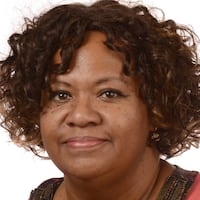The fate of the four Brookwood High band members who pulled a racially charged prank during the halftime show last Friday will never become public knowledge. Federal laws to protect student records won't allow school systems to reveal names of students who commit school infractions or the punishments.
On Friday, Nov. 2, four sousaphone players from the Gwinnett County high school used letters on their instrument covers to spell out the racially insensitive word ‘coon’ during the halftime show against DeKalb County’s Lakeside High. The next day Brookwood Principal William Bo Ford sent a letter to the community apologizing for the students’ behavior and vowing to investigate.
On Monday, Nov. 5, Ford issued another statement revealing that three seniors and a junior — all minorities — had planned the prank as a joke. Neither the students’ identities, the exact school charges they face nor their punishments are subject to state open-records laws because they are children and aren’t charged with a crime.
“Students who create or cause a disruption that involves a racial slur typically face a range of consequences including suspension pending a disciplinary panel,” said Gwinnett County schools spokesman Bernard Watson.
According to the Student Code of Conduct, students who are under suspension or expulsion will not be allowed to participate in any school-sponsored activities, so it’s possible those students are no longer in the band.
Many in the community are concerned that Ford’s reference to the incident in his letter as a “teachable moment” may indicate that not enough will be done about it.
"People are still upset," said Gwinnett NAACP President Penny Poole. "These students are young adults. They need to understand the gravity of what they did."
Poole met Wednesday with a group of concerned parents who want the school and the school system to use this as an opportunity to understand why the students thought the prank was funny or wouldn’t upset the community as it has.
“We need to have some sort of discussion or forum to help students understand the history of terms like that and the ramifications that can come from using them lightly,” said Poole.
She said she hasn’t heard back from Ford, but is hoping he agrees with the group she represents.
“It’s not OK that the students who did this are of color,” Poole said. “It’s just as important that everyone understand the severity.”
About the Author


